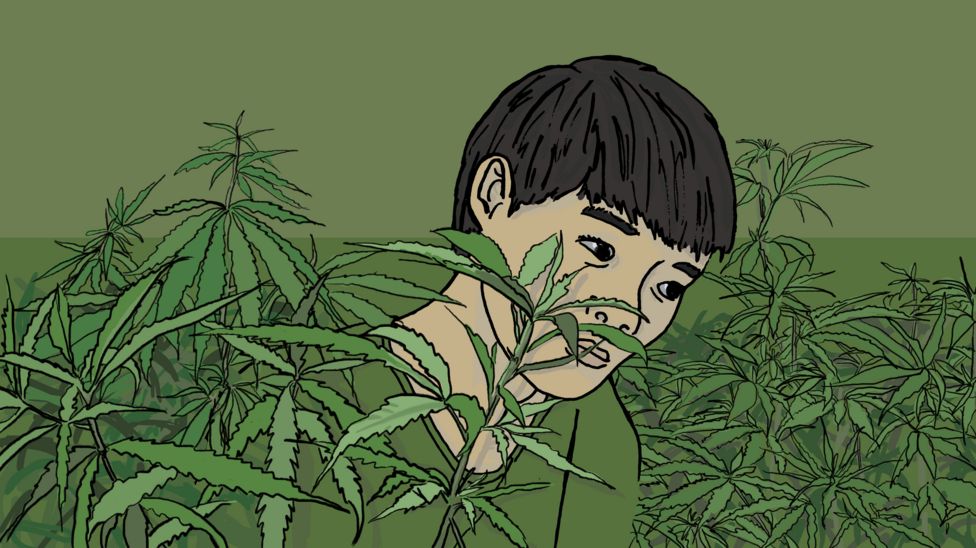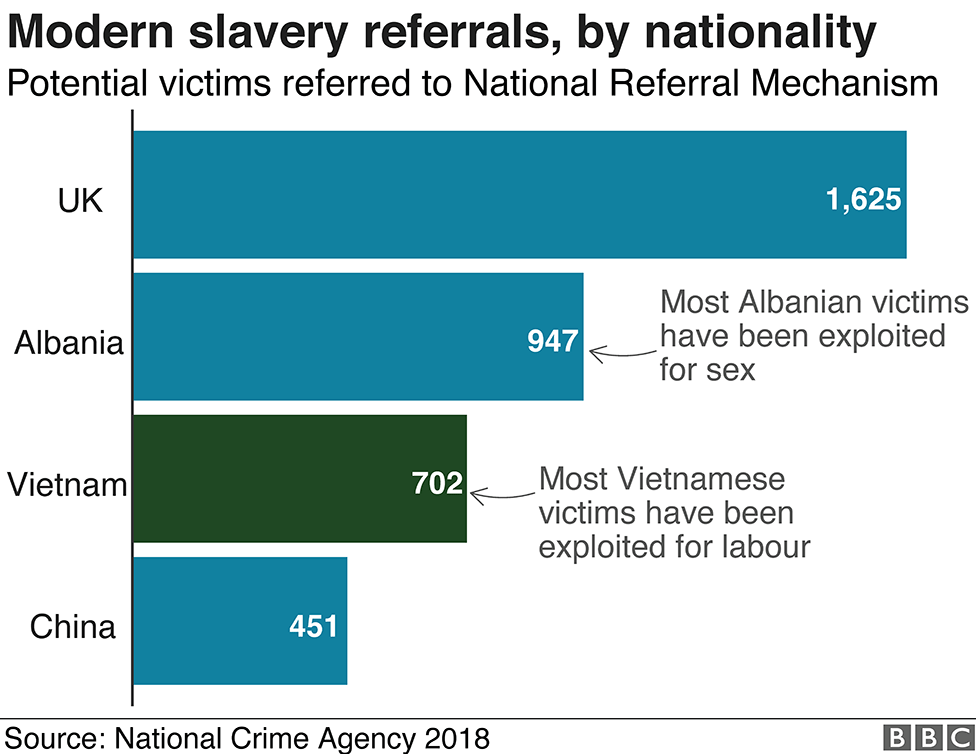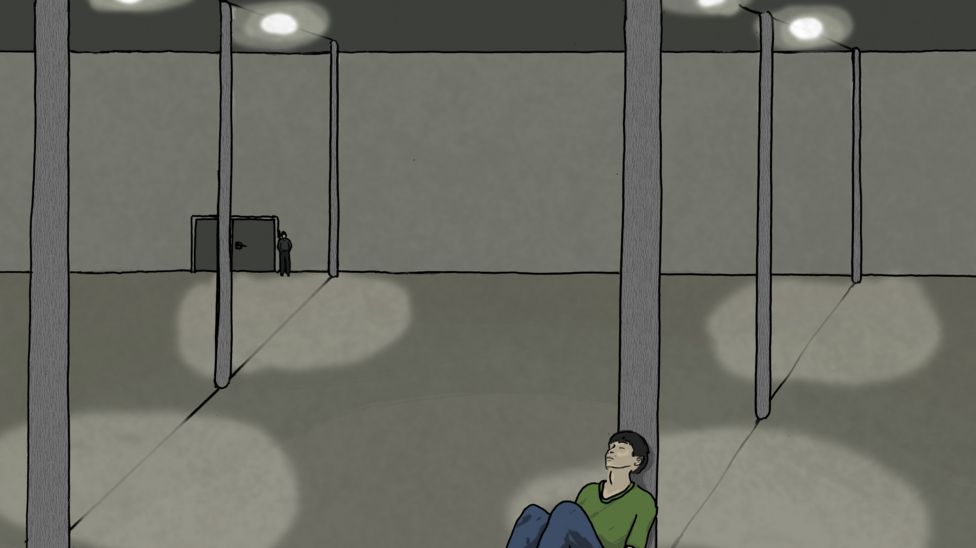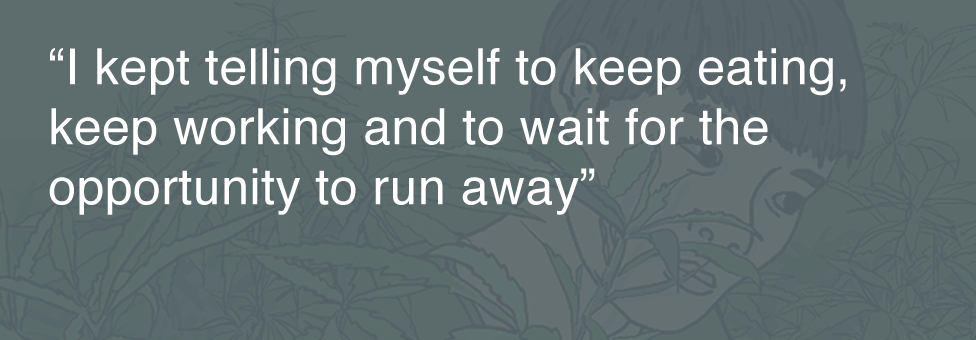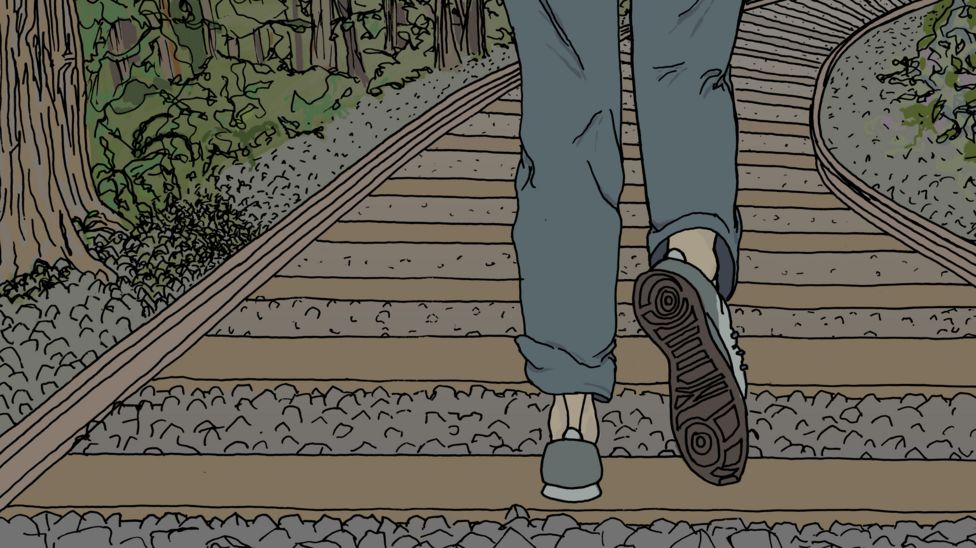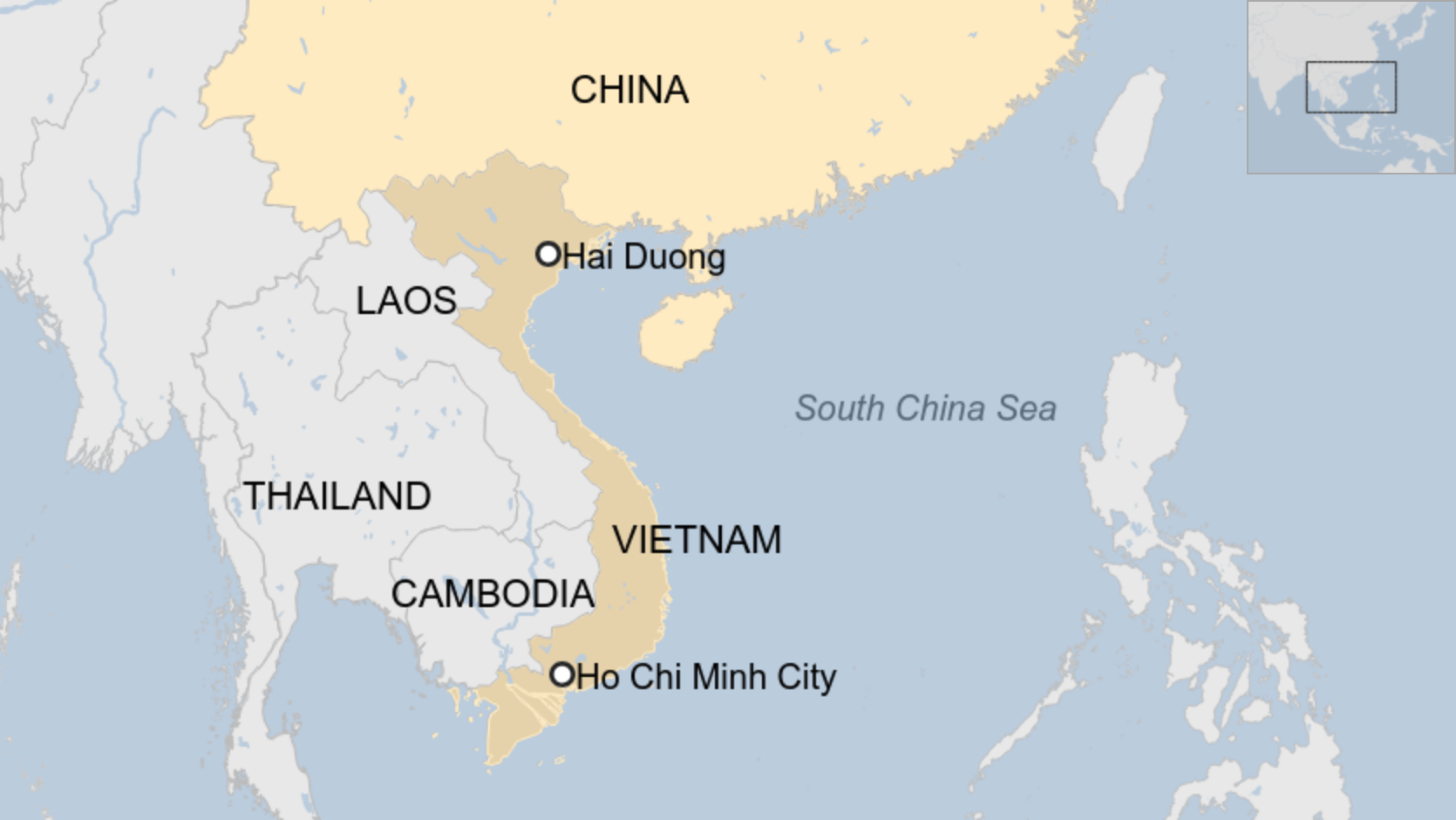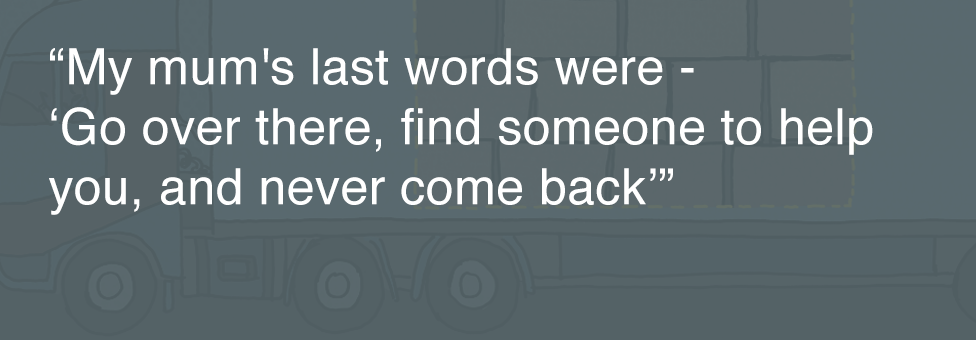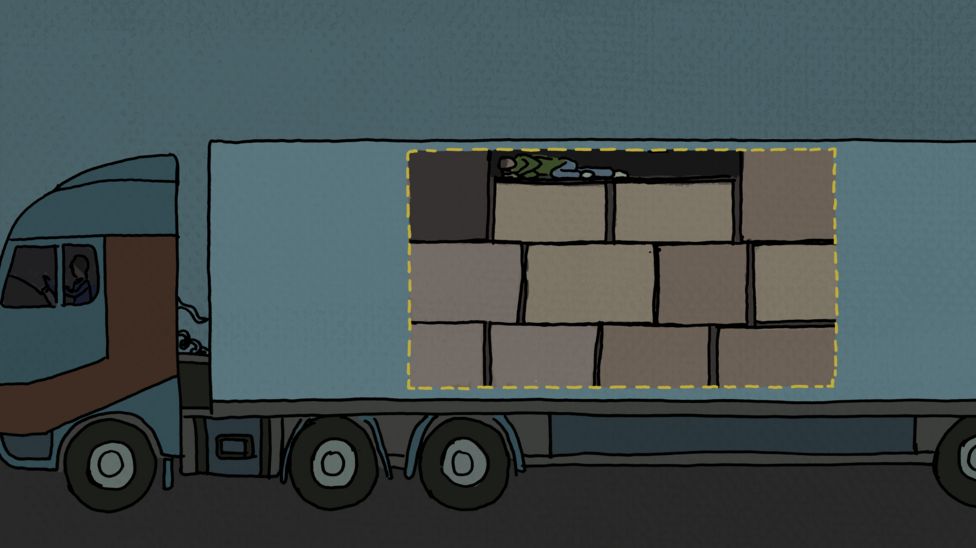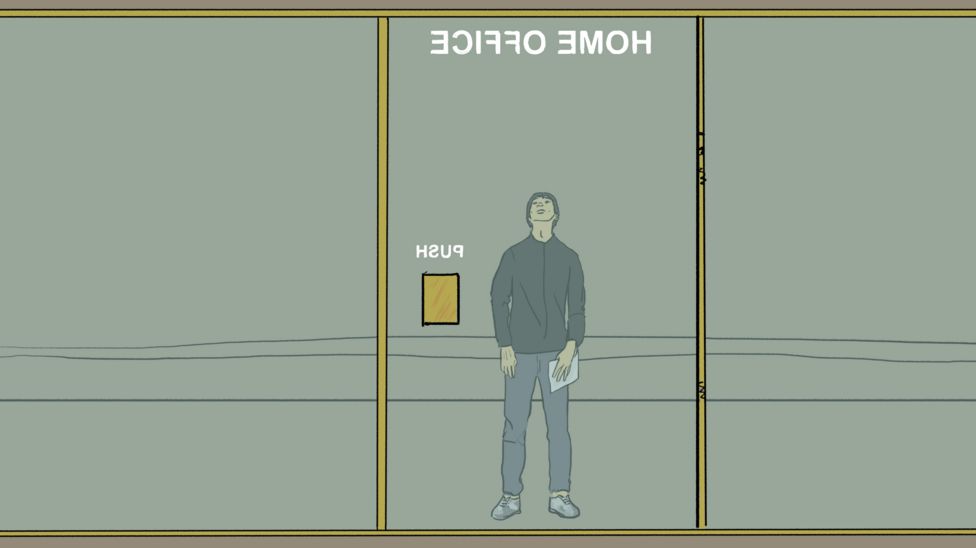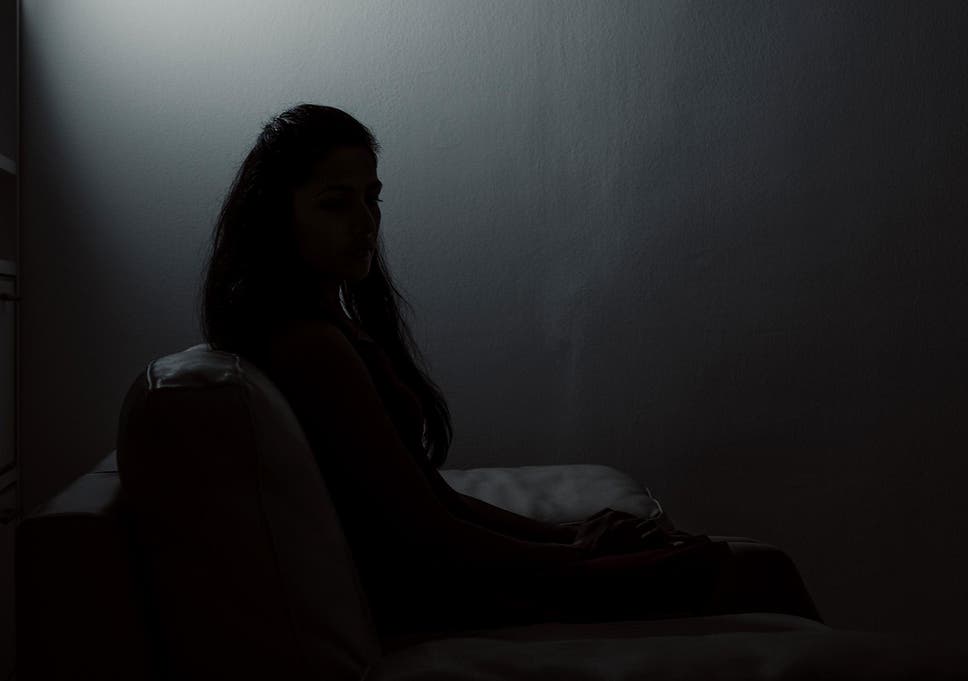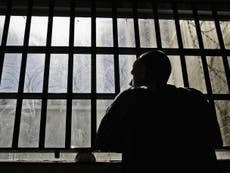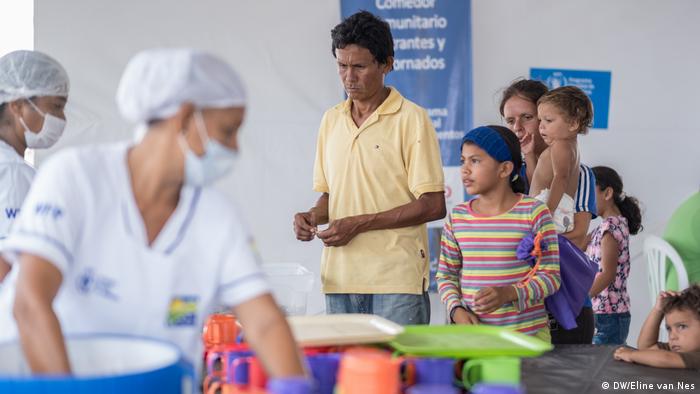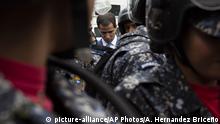What if the Universe has no end?
I THOUGHT IT WAS INFINITE
I STILL WONDER WHAT IS IT THAT THE UNIVERSE IS EXPANDING INTO
SPACE
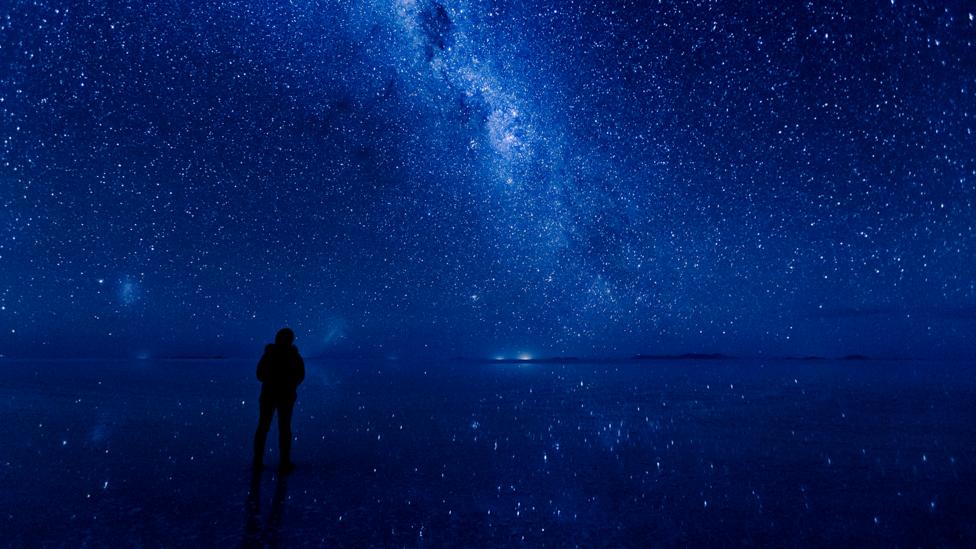
The Big Bang is widely accepted as being the beginning of everything we see around us, but other theories that are gathering support among scientists are suggesting otherwise.

By Patchen Barss 19th January 2020
The usual story of the Universe has a beginning, middle, and an end.
It began with the Big Bang 13.8 billion years ago when the Universe was tiny, hot, and dense. In less than a billionth of a billionth of a second, that pinpoint of a universe expanded to more than a billion, billion times its original size through a process called “cosmological inflation”.
Next came “the graceful exit”, when inflation stopped. The universe carried on expanding and cooling, but at a fraction of the initial rate. For the next 380,000 years, the Universe was so dense that not even light could move through it – the cosmos was an opaque, superhot plasma of scattered particles. When things finally cooled enough for the first hydrogen atoms to form, the Universe swiftly became transparent. Radiation burst out in every direction, and the Universe was on its way to becoming the lumpy entity we see today, with vast swaths of empty space punctuated by clumps of particles, dust, stars, black holes, galaxies, radiation, and other forms of matter and energy.
You might also like:
• Did "dark stars" help form our universe
• The photo that summed up our place in the Universe
• Is there a hidden code that rules the Universe
Eventually these lumps of matter will drift so far apart that they will slowly disappear, according to some models. The Universe will become a cold, uniform soup of isolated photons.
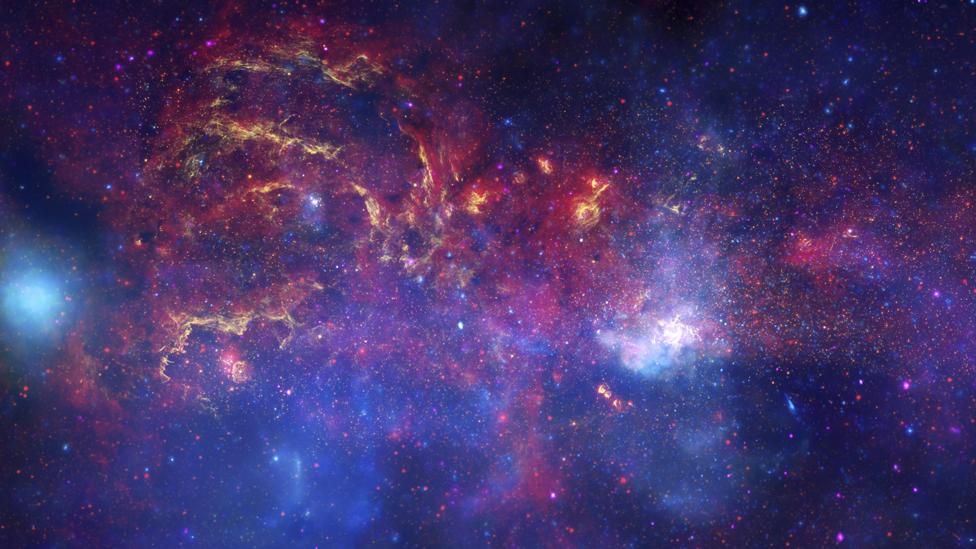
The Universe we can currently see is made up of clumps of particles, dust, stars, black holes, galaxies, radiation (Credit: NASA/JPL-Caltech/ESA/CXC/STScI)
It’s not a particularly dramatic ending, although it does have a satisfying finality.
But what if the Big Bang wasn’t actually the start of it all?
Perhaps the Big Bang was more of a “Big Bounce”, a turning point in an ongoing cycle of contraction and expansion. Or, it could be more like a point of reflection, with a mirror image of our universe expanding out the “other side”, where antimatter replaces matter, and time itself flows backwards. (There might even be a “mirror you” pondering what life looks like on this side.)
Perhaps the Big Bang was more of a “Big Bounce”, a turning point in an ongoing cycle of contraction and expansion
Or, the Big Bang might be a transition point in a universe that has always been – and always will be – expanding. All of these theories sit outside mainstream cosmology, but all are supported by influential scientists.
The growing number of these competing theories suggests that it might now be time to let go of the idea that the Big Bang marked the beginning of space and time. And, indeed, that it may even have an end.
Many competing Big Bang alternative stem from deep dissatisfaction with the idea of cosmological inflation.
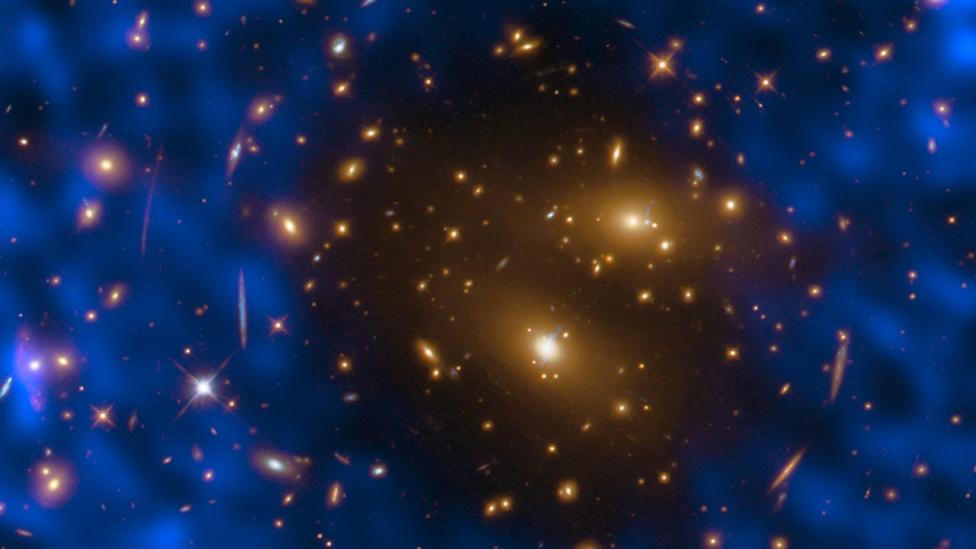
Scars left by the Big Bang in a weak microwave radiation that permeates the entire cosmos provides clues about what the early Universe looked like (Credit: Nasa)
“I have to confess, I never liked inflation from the beginning,” says Neil Turok, the former director of the Perimeter Institute for Theoretical Physics in Waterloo, Canada.
“The inflationary paradigm has failed,” adds Paul Steinhardt, Albert Einstein professor in science at Princeton University, and proponent of a “Big Bounce” model.
“I always regarded inflation as a very artificial theory,” says Roger Penrose, emeritus Rouse Ball professor of mathematics at Oxford University. “The main reason that it didn't die at birth is that it was the only thing people could think of to explain what they call the ‘scale invariance of the Cosmic Microwave Background temperature fluctuations’.”
The Cosmic Microwave Background (or “CMB”) has been a fundamental factor in every model of the Universe since it was first observed in 1965. It’s a faint, ambient radiation found everywhere in the observable Universe that dates back to that moment when the Universe first became transparent to radiation.
The CMB is a major source of information about what the early Universe looked like. It is also a tantalising mystery for physicists. In every direction scientists point a radio telescope, the CMB looks the same, even in regions that seemingly could never have interacted with one another at any point in the history of a 13.8 billion-year- old universe.
Our observable universe expanded from one tiny homogenous region within that primordial hot mess
“The CMB temperature is the same on opposite sides of the sky and those parts of the sky would never have been in causal contact,” says Katie Mack, a cosmologist at North Carolina State University. “Something had to connect those two regions of the Universe in the past. Something had to tell that part of the sky to be the same temperature as that part of the sky.”
Without some mechanism to even out the temperature across the observable Universe, scientists would expect to see much larger variations in different regions.
Inflation offers a way to solve this so-called “homogeneity problem”. With a period of insane expansion stretching out the Universe so rapidly that almost the entire thing ended up far beyond the region we can observe and interact with. Our observableuniverse expanded from one tiny homogenous region within that primordial hot mess, producing the uniform CMB. Other regions beyond what we can observe might look very different.
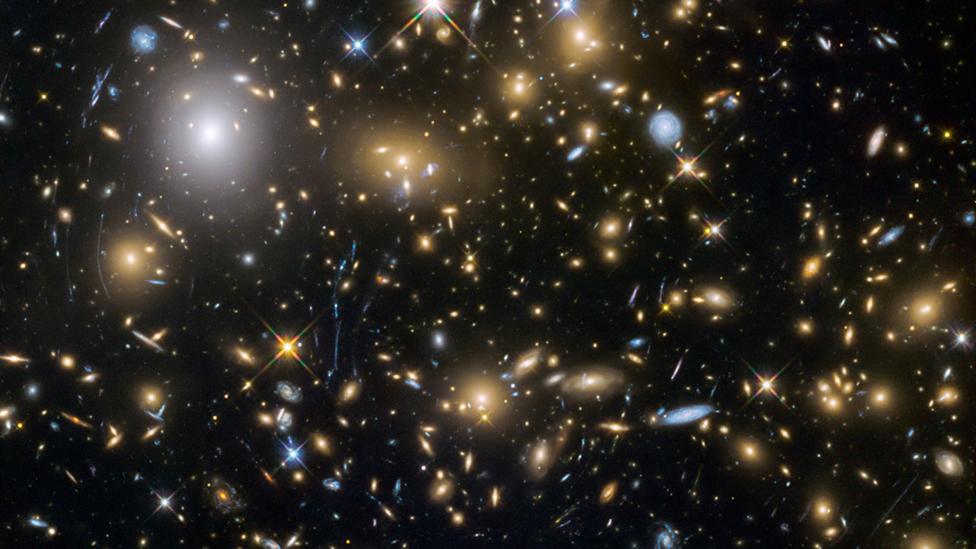
Theoretical physicists are increasingly finding that inflation theory fails to account for the spread of matter and energy observed in the Universe (Credit: Nasa/ESA)
“Inflation seems to be the thing that has enough support from the data that we can take it as the default,” says Mack. ”It's the one I teach in my classes. But I always say that we don't know for sure that this happened. But it seems to fit the data pretty well, and is what most people would say is most likely.”
But there have always been shortcomings with the theory. Notably, there is no definitive mechanism to trigger inflationary expansion, or a testable explanation for how the graceful ending could happen. One idea put forward by proponents of inflation is that theoretical particles made up something called an “inflation field” that drove inflation and then decayed into the particles we see around us today.
But even with tweaks like this, inflation makes predictions that have, at least thus far, not been confirmed. The theory says spacetime should be warped by primordial gravitational waves that ricocheted out across the Universe with the Big Bang. But while certain types of gravitational waves have been detected, none of these primordial ones have yet been found to support the theory.
Quantum physics also forces inflation theories into very messy territory. Rare quantum fluctuations are predicted to cause inflation to break space up into an infinite number of patches with wildly different properties – a “multiverse” in which literally every imaginable outcome occurs.
“The theory is completely indecisive,” says Steinhardt. “It can only say that the observable Universe might be like this or that or any other possibility you can imagine, depending on where we happen to be in the multiverse. Nothing is ruled out that is physically conceivable.”
Steinhardt, who was one of the original architects of inflationary theory, ultimately got fed up with the lack of predictiveness and untestability.
“Do we really need to imagine that there exist an infinite number of messy universes that we have never seen and never will see in order to explain the one simple and remarkably smooth Universe we actually observe?” he asks. “I say no. We have to look for a better idea.”
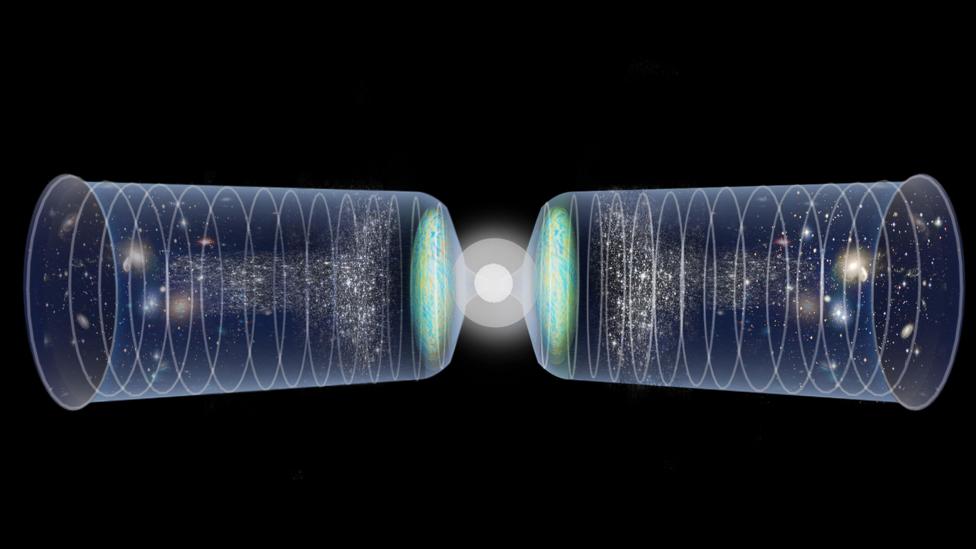
Rather than being a beginning, the Big Bang could have been a moment of transition from one period of space and time to another – more of a bounce (Credit: Alamy)
The problem might have to do with the Big Bang itself, and with the idea that there was a beginning to space and time.
The “Big Bounce” theory agrees with the Big Bang picture of a hot, dense universe 13.8 billion years ago that began to expand and cool. But rather than being the beginning of space and time, that was a moment of transition from an earlier phase during which space was contracting.
With a bounce rather than a bang, Steinhardt says, distant parts of the cosmos would have plenty of time to interact with each other, and to form a single smooth universe in which the sources of CMB radiation would have had a chance to even out.
In fact, it’s possible that time has existed forever.
“And if a bounce happened in our past, why could there not have been many of them?” says Steinhardt. “In that case, it is plausible that there is one in our future. Our expanding universe could start to contract, returning to that dense state and starting the bounce cycle again.”
Steinhardt and Turok worked together on some early versions of the Big Bounce model, in which the Universe shrunk to such a tiny size that quantum physics took over from classical physics, leaving the predictions uncertain. But more recently, another of Steinhardt’s collaborators, Anna Ijjas, developed a model in which the Universe never gets so small that quantum physics dominates.
“It’s a rather prosaic, conservative idea described at all times by classical equations,” Steinhardt says. “Inflation says there’s a multiverse, that there’s an infinite number of ways the Universe might come out, and we just happen to live in the one that is smooth and flat. That’s possible but not likely. This Big Bounce model says this is how the Universe must be.”
Neil Turok has also been exploring another avenue for a simpler alternative to inflationary theory, the “Mirror Universe”. It predicts that another universe dominated by antimatter, but governed by the same physical laws as our own, is expanding outwards on the other side of the Big Bang – a kind of “anti-universe”, if you like.
“I take one thing away from the observations of the last 30 years, which is that the Universe is unbelievably simple,” he says. “At large scales, it is not chaotic. It is not random. It's incredibly ordered and regular and requires very few numbers to describe everything.”
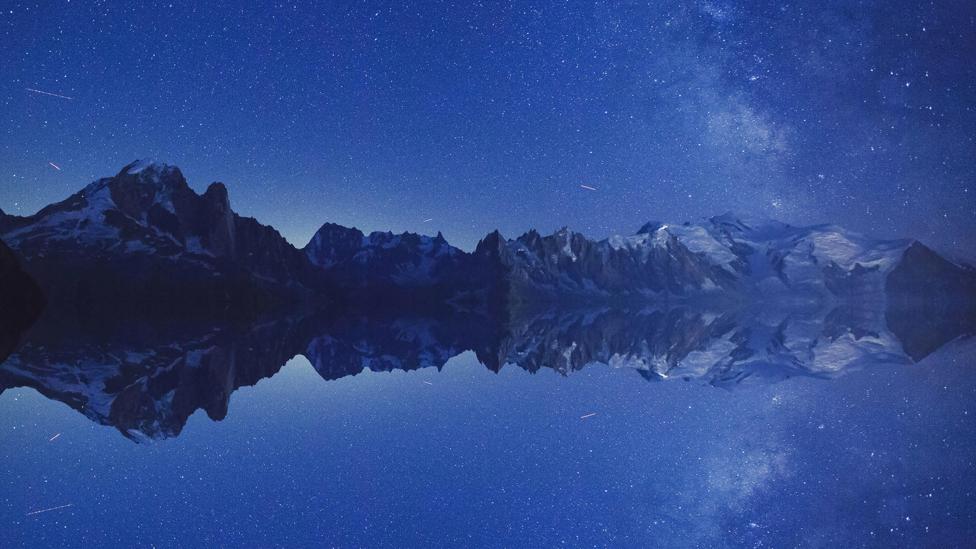
Our forward-time flowing universe could have a perfect reflection that also extends out in reverse from the event we call the Big Bang (Credit: Alamy)
With this in mind, Turok sees no place for a multiverse, higher dimensions, or new particles to explain what can be seen when we look up at the heavens. The Mirror Universe offers all that – and might also solve one of the Universe’s big mysteries.
If you add up all the known mass in a galaxy – stars, nebulae, black holes and so on – the total doesn’t create enough gravity to explain the motion within and between galaxies. The remainder seems to be made up of something we cannot currently see – dark matter. This mysterious stuff accounts for about 85% of the matter in the universe.
The Mirror Universe model predicts that the Big Bang produced a particle known as “right-handed neutrinos” in abundance. While particle physicists have yet to directly see any of these particles, they are pretty sure they exist. And it is these that make up dark matter, according to those who support the Mirror Universe theory.
“It’s the only particle on that list (of particles in the Standard Model) that has the two requisite properties that we haven't directly observed it yet, and it could be stable,” says Latham Boyle, another leading proponent of the Mirror Universe theory and a colleague of Turok at the Perimeter Institute.
The entire picture of what we know nowadays, the whole history of the Universe, is what I call one ‘aeon’ in a succession of aeons – Roger Penrose
Perhaps the most challenging alternative to the Big Bang and inflation is Roger Penrose’s “Conformal Cyclic Cosmology” theory (CCC). Like the Big Bounce, it involves a universe that might have existed forever. But in CCC, it never goes through a period of contraction – it only ever expands.
“The view I have is that the Big Bang was not the beginning,” says Penrose. “The entire picture of what we know nowadays, the whole history of the Universe, is what I call one ‘aeon’ in a succession of aeons.”
Penrose’s model predicts that much of the matter in the Universe will eventually be dragged into ultra-massive black holes. As the Universe expands and cools to near absolute zero, those black holes will “boil away” through a phenomenon called Hawking Radiation.
“You have to think in terms of something like a googol years, which means a number one with 100 zeros,” says Penrose. “That’s the number of years or more for the really big ones to finally evaporate away. And then you’ve got a universe really dominated by photons (particles of light).”
Penrose says at this point, the Universe begins to look much as it did at its start, setting the stage for the start of another aeon.
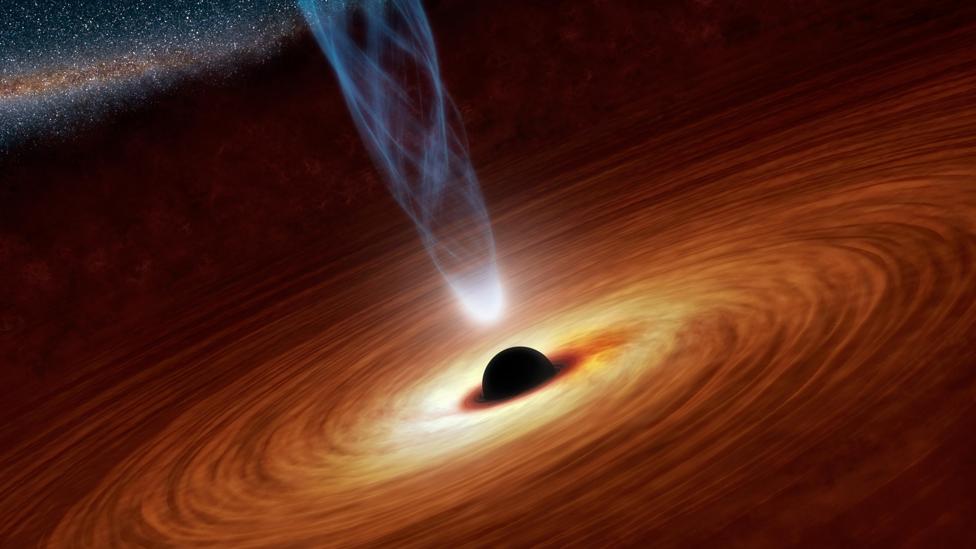
Conformal Cyclic Cosmology predicts that much of the Universe will be pulled into enormous black holes that will then boil away (Credit: NASA/JPL-Caltech)
One of the predictions of CCC is that there might be a record of the previous aeon in the cosmic microwave background radiation that originally inspired the inflation model. When hyper-massive black holes collide, the impact creates a huge release of energy in the form of gravitational waves. When giant black holes finally evaporate, they release a huge amount of energy in the form of low-frequency photons. Both of these phenomena are so powerful, Penrose says, that they can “burst through to the other side” of a transition from one aeon to the next, each leaving its own kind of “signal” embedded in the CMB like an echo from the past.
Penrose calls the patterns left behind by evaporating black holes “Hawking Points”.
For the first 380,000 years of the current aeon, these would have been nothing more than tiny points in the cosmos, but as the Universe has expanded, they would appear as “splotches” across the sky.
Penrose has been working with Polish, Korean and Armenian cosmologists to see if these patterns can actually be found by comparing measurements of the CMB with thousands of random patterns.
“The conclusion we come to is that we see these spots in the sky with 99.98% confidence,” Penrose says. The physics world has, however, remained largely skeptical of these results to date and there has been limited interest among cosmologists about even attempting to replicate Penrose’s analysis.
It is unlikely that we will ever be able to directly observe what happened in the first moments after the Big Bang, let alone the moments before. The opaque superheated plasma that existed in the early moments will likely forever obscure our view. But there are other potentially observable phenomena such as primordial gravitational waves, primordial black holes, right-handed neutrinos, that could provide us some clues about which of the theories about our universe are correct.
“As we develop new theories and new models of cosmology, those will give us other interesting predictions that can that we can look for,” says Mack. “The hope is not necessarily that we're going to see the beginning more directly, but that maybe through some roundabout way we'll better understand the structure of physics itself.”
Until then, the story of our universe, its beginnings and whether it has an end, will continue to be debated.
---30---

